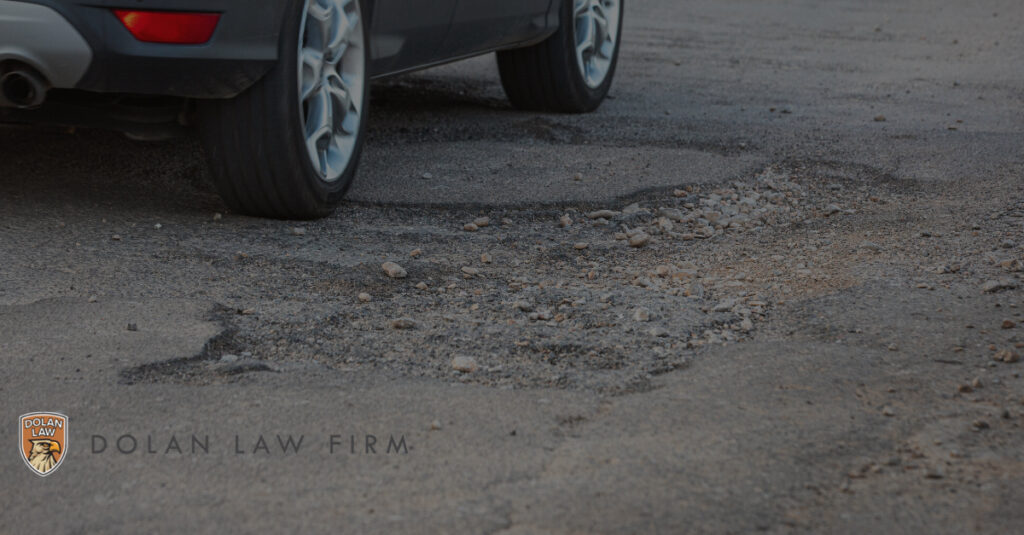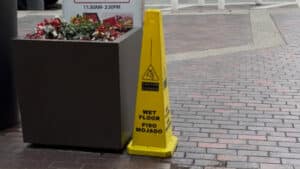Written By Chris Dolan and Cristina Garcia
This week’s question comes from Kathy J. in the Sunset District, who asks: After this year’s stormy winter, new potholes seem to be appearing daily. Over the weekend, I was driving to my friend’s house when I hit a pothole in the road. The pothole caused me to lose control of my vehicle, and I eventually crashed into a tree. The impact destroyed the front of my car and deployed my airbags. I vaguely recall the police officer and ambulance arriving. At the hospital, I was diagnosed with facial bruising, a concussion, and a broken wrist. I am unsure what my next steps are, as the accident did not involve another vehicle, and I was not at fault for crashing into the tree. However, I now have large medical bills, and my car has significant property damage. Who is responsible if a pothole leads to an injury?
Dear Kathy,
That is a great question. Potholes are more prevalent after heavy rains as the precipitation saturates the ground and causes the asphalt to break up. Government entities such as cities, counties, the State, or the Federal government own public roadways. Therefore, the first step is determining which entity owns the road. A government entity, like any other property owner, is responsible for maintaining its premises in a reasonably safe condition. It is important to note that “reasonably” does not mean in perfect condition or that maintenance needs to occur instantaneously. However, showing that the responsible government entity had notice of the pothole is essential in establishing liability.
Many cities and counties have online portals or phone numbers where residents can report dangerous roadway conditions such as potholes. For example, in San Francisco, the SF311 Mobile App can be used to submit service requests. For this reason, it is important for anyone who comes across a pothole, whether you are a driver or a pedestrian, to file a service request notifying the government entity of the roadway condition.
California Government Code §§ 830 et seq. lays out the rules for liability stemming from any “dangerous condition of public property,” defined as a condition that creates a substantial risk of injury when such property is used with due care in a reasonably foreseeable manner. Cal. Gov. Code § 830.2. Special rules apply when filing a claim against a government entity. The injured individual must file an administrative claim before filing a personal injury lawsuit against a government entity. It is important to note that there is a limited time in which you can bring an administrative claim against a government entity. Under California Government Code Section 910, you must file a claim against the government entity within six (6) months after the event or occurrence. Be sure to file the claim with the appropriate government office or agency. Further, it is equally important that you use the claim form of that government agency when filing a claim, as section 910 prescribes a list of the required information you must provide in your claim. Otherwise, the claim may be deemed invalid.
While the government entity can be held responsible for dangerous conditions on its roadways, it is critical to note that a non-trivial dangerous condition does not mean the city is liable for damages. Further, when a claimant can prove the statutory requirements, the government entity may still raise several defenses to defeat liability. It may argue that it exercised due care by posting warning signs to prevent vehicles from hitting potholes or claiming that it is “open and obvious”; therefore, no warning signs were necessary.
Claims against any government agency present their unique challenges. There are strict time limits and different procedural rules that apply to government claims. For this reason, it is important to retain a skilled trial attorney to assist you in pursuing your government claim and ensure you obtain the compensation that you deserve.










